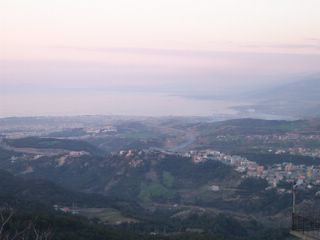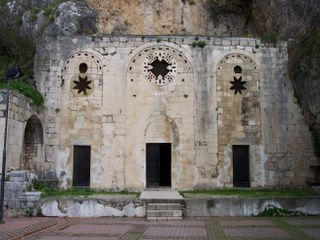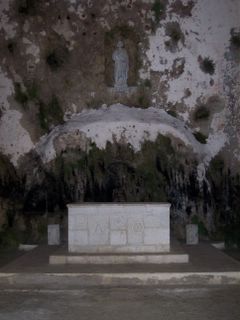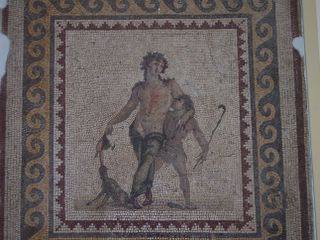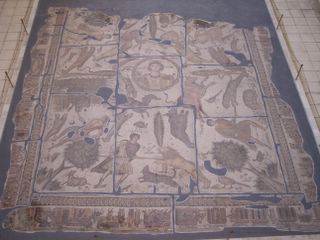Here's an article from the
New York Times that Hannah sent me. You can read it there but the bandits make you register, so I've posted the text here also.
NICHOLAS D. KRISTOF
Before the "Rev. Dr." Matt Hale, the white racist leader, was arrested for seeking the murder of a federal judge, and long before the judge returned home last week to find her husband and mother murdered, I had lunch with him.
Mr. Hale, who is smart, articulate and malignant, ranted about "race betrayers" as he picked at his fruit salad: "Interracial marriage is against nature. It's a form of bestiality."
"Oh?" I replied. "Incidentally, my wife is Chinese-American."
There was an awkward silence.
Mr. Hale was convicted last year of soliciting the murder of Federal District Judge Joan Humphrey Lefkow. Now the police are investigating whether there is any link between Mr. Hale or his followers and the murders. Some white supremacists celebrated the killings, but Mr. Hale has strongly denied any involvement.
The possibility that extremists carried out the murders for revenge or intimidation sends a chill through our judicial system, because it would then constitute an assault on our judiciary itself. Throughout U.S. history, only three federal judges have been murdered, but all three murders occurred after 1978 and all at their homes.
Threats to federal judges and prosecutors have increased sharply since they began to be tabulated 25 years ago, but the attack on Judge Lefkow's family, if it was related to her work, would take such threats to a new level. Who would want to be a judge if that risked the lives of loved ones?
Whatever the circumstances of those murders, Mr. Hale provides a scary window into a niche of America that few of us know much about. Since 9/11, we've focused almost exclusively on the risk of terrorism from Muslim foreigners, but we have plenty of potential homegrown Osamas.
I interviewed Mr. Hale in 2002 because I had heard that he was becoming a key figure in America's hate community, recruiting followers with a savvy high-tech marketing machine. Over lunch in East Peoria, Ill., he described how as a schoolboy he had become a racist after seeing white girls kissing black boys.
"I felt nauseous," he told me earnestly.
Mr. Hale said attacks on race-betrayers and "mud people" were understandable but a waste of time. "Suppose someone goes out and kills 10 blacks tonight," he said, shrugging. "Well, there are millions more."
What troubled me most about Mr. Hale was not his extremist views, but his obvious organizational ability and talent to inspire his followers. When he was denied a law license in 1999 because of his racist views, a follower went on a rampage and shot 11 people - all blacks, Asians or Jews.
After the Oklahoma City bombing, American law enforcement authorities cracked down quite effectively on domestic racists and militia leaders. But Mark Potok of the Southern Poverty Law Center, which monitors 760 hate groups with about 100,000 members, notes that after 9/11, the law enforcement focus switched overwhelmingly to Arabs.
The Feds are right to be especially alarmed about Al Qaeda. But we also need to be more vigilant about the domestic white supremacists, neo-Nazis and militia members. After all, some have more W.M.D. than Saddam.
Two years ago, for example, a Texan in a militia, William Krar, was caught with 25 machine guns and other weapons, a quarter-million rounds of ammunition, 60 pipe bombs and enough sodium cyanide to kill hundreds of people.
We were too complacent about Al Qaeda and foreign terrorists before 9/11. And now we're too complacent about homegrown threats.
Mr. Hale handed me some of his church's gospels, including "The White Man's Bible" - which embarrassed me at the airport when I was selected for a random security screening and the contents of my bag laid out on a table. Then, even though the screeners apparently believed that I was a neo-Nazi with violent, racist tracts, they let me board without any further check.
That "White Man's Bible" says: "We don't need the Jews, the [blacks], or any other mud people. ... We have the fighting creed to re-affirm the White Man's triumph of the will as heroically demonstrated by that greatest of all White leaders - Adolf Hitler. So let us get into the fight today, now! You have no alibi, no other way out, White Man! It's either Fight or Die!"
So we don't have to go to Saudi Arabia to find violent religious extremists steeped in hatred for all America stands for. Wake up - they're here.
